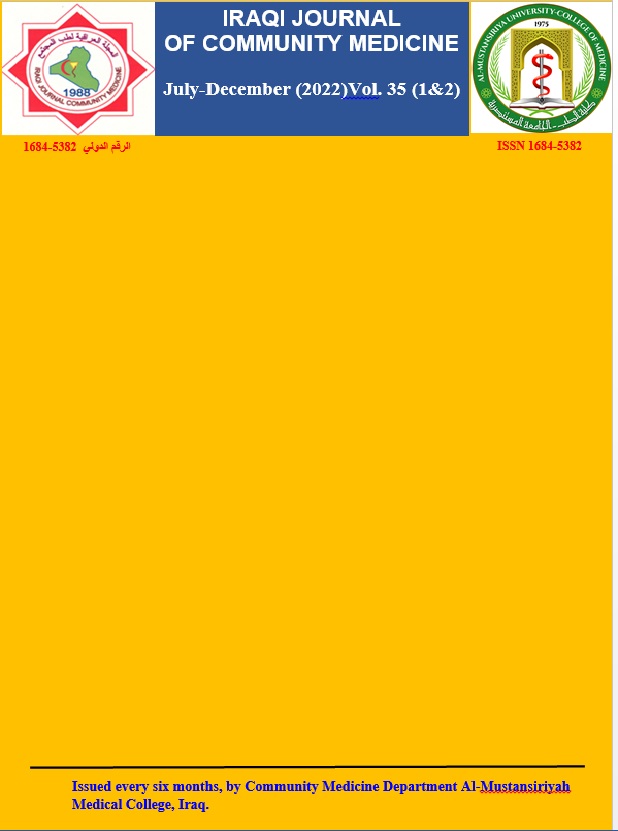Abstract
Background: Neonatal jaundice is one of the most common diseases globally. It's believed that delays in detection
and improper treatment of neonatal jaundice can be responsible for neonatal morbidity and mortality. Knowledge
and health seeking behavior of mothers play an important role in the course of this health condition.
Objectives: to assess the knowledge and health seeking behavior regarding neonatal jaundice of newly delivered
mothers. Determine the influence of some maternal characteristics on knowledge, and health care seeking behavior
regarding neonatal jaundice.
Methodology: A cross sectional study was conducted on newly delivered mothers at Al-Yarmouk teaching hospital in
Baghdad for the period from May to the end of August, 2016. Data was collected via direct interview with the
newly delivered mothers using a special questionnaire form to assess the knowledge and health seeking behavior
regarding neonatal jaundice. In addition, the data collected comprised some characteristics of the mother.
Results: The study included 500 mothers. Only 4% of mothers had good knowledge, while others were between fair
and poor knowledge levels.
Appropriate health seeking behavior was adopted by only 21% of the study group regarding the management of
neonatal jaundice.
Cultural beliefs and traditional care practices still have an impact on mothers as (78.4%) of them had used traditional
methods for treating their babies. Better education and being employed influenced mothers' knowledge and health
seeking behavior. Mothers parity showed its' influence on knowledge level only.
Conclusion:
There are gaps in mothers' knowledge and health seeking behavior regarding neonatal jaundice. Targeted education
during antenatal care by health professionals is needed to
help mothers recognize neonatal jaundice, refrain from potentially harmful home interventions and promptly seek
healthcare.
Keywords: Knowledge, Behavior, Mothers, Neonatal, Jaundice.
and improper treatment of neonatal jaundice can be responsible for neonatal morbidity and mortality. Knowledge
and health seeking behavior of mothers play an important role in the course of this health condition.
Objectives: to assess the knowledge and health seeking behavior regarding neonatal jaundice of newly delivered
mothers. Determine the influence of some maternal characteristics on knowledge, and health care seeking behavior
regarding neonatal jaundice.
Methodology: A cross sectional study was conducted on newly delivered mothers at Al-Yarmouk teaching hospital in
Baghdad for the period from May to the end of August, 2016. Data was collected via direct interview with the
newly delivered mothers using a special questionnaire form to assess the knowledge and health seeking behavior
regarding neonatal jaundice. In addition, the data collected comprised some characteristics of the mother.
Results: The study included 500 mothers. Only 4% of mothers had good knowledge, while others were between fair
and poor knowledge levels.
Appropriate health seeking behavior was adopted by only 21% of the study group regarding the management of
neonatal jaundice.
Cultural beliefs and traditional care practices still have an impact on mothers as (78.4%) of them had used traditional
methods for treating their babies. Better education and being employed influenced mothers' knowledge and health
seeking behavior. Mothers parity showed its' influence on knowledge level only.
Conclusion:
There are gaps in mothers' knowledge and health seeking behavior regarding neonatal jaundice. Targeted education
during antenatal care by health professionals is needed to
help mothers recognize neonatal jaundice, refrain from potentially harmful home interventions and promptly seek
healthcare.
Keywords: Knowledge, Behavior, Mothers, Neonatal, Jaundice.
